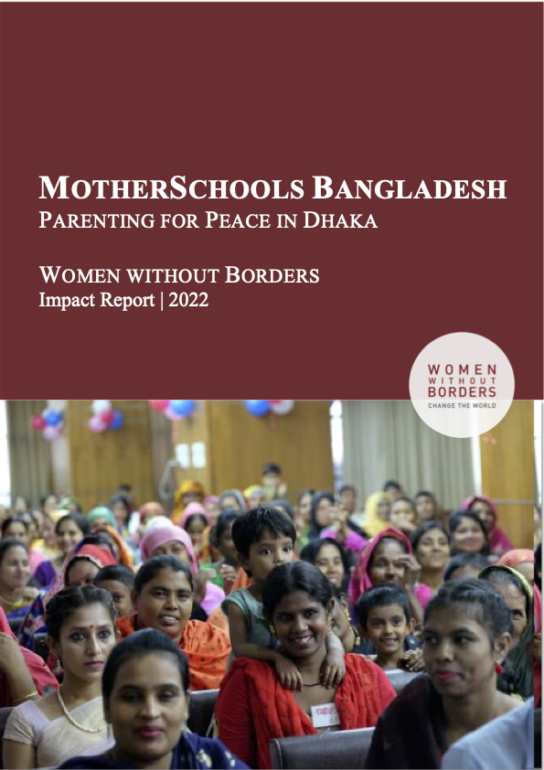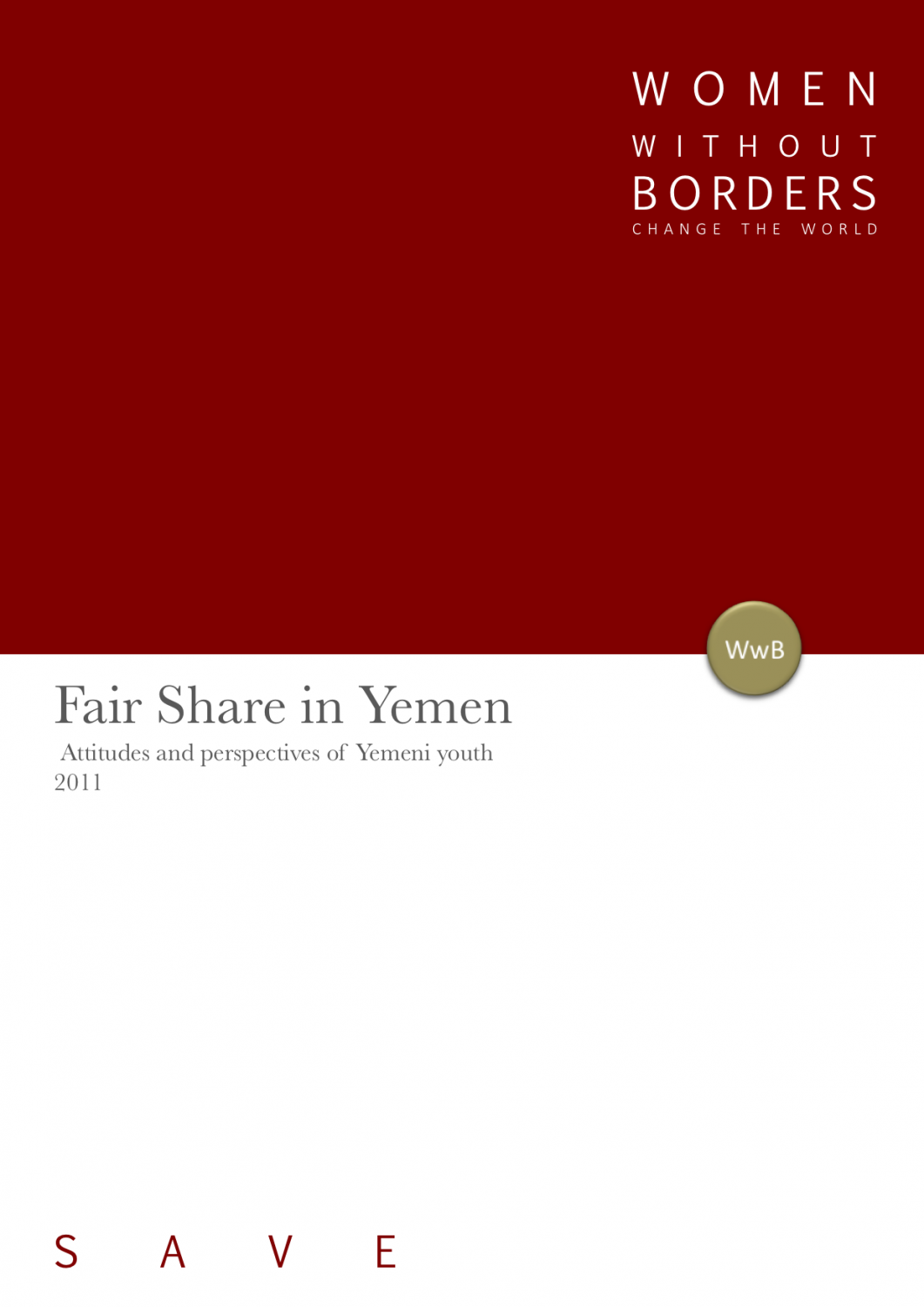Between 2018 and 2019, WwB brought its ‘MotherSchools: Parenting for Peace’ Model to Bangladesh. MotherSchools programmes were implemented in three districts across Dhaka that were considered vulnerable to violent extremism. This impact report offers an overview of the MotherSchools project in Dhaka and presents WwB’s impact findings with respect to the programme beneficiaries.
The issue of violent extremism in Bangladesh has persisted and indeed intensified over the past decade. While the government’s dominant focus on hard power approaches has helped to foil imminent attacks, youths continue to be at risk of radical recruitment efforts. Responding to the community-level spread of violent extremism, Women without Borders (WwB) in cooperation with local implementing partner Manusher Jonno Foundation (MJF) rolled out its ‘MotherSchools: Parenting for Peace’ Model in low-income communities across Bangladesh’s capital of Dhaka between 2018 and 2019. In so doing, they brought into the fold security allies who had been missing from contemporary security strategies: concerned and affected mothers of adolescents and young adults whose environment had made them prone to recruitment efforts.
Ahead of launching its three MotherSchools groups in parallel, WwB trained a pool of fourteen local professionals as prospective MotherSchools Teachers and Notetakers. Six of the qualified Teachers across three groups went on to deliver the Curriculum to sixty mothers who were concerned that their community environment could make their children susceptible to radicalisation. Upon graduating from the MotherSchools programme, the mothers as Participants had each received at least forty hours of training to become role models and prevention stakeholders in their families and communities.
This report offers an overview of the MotherSchools project in Dhaka and presents WwB’s impact findings with respect to the programme beneficiaries. Applying a qualitative data analysis to the 113 semi-structured Entry and Exit Interviews conducted before and after the programme, WwB found improvements on three levels. On the personal level, mothers built up the necessary self-confidence and individual capacity to become a first line of defence against extremism in their homes and communities. At the familial level, mothers restructured dynamics and adopted parenting styles that improved their relationships with their children and husbands. At the community level, they built prevention networks, broke the silence around and spread awareness of extremism, and strengthened resilience by disseminating their learnings to the wider community. As the sixteenth country to adopt the programme, Bangladesh is now part of WwB’s global effort to equip mothers with the knowledge and skills to become central violence prevention allies in at-risk communities around the world.



